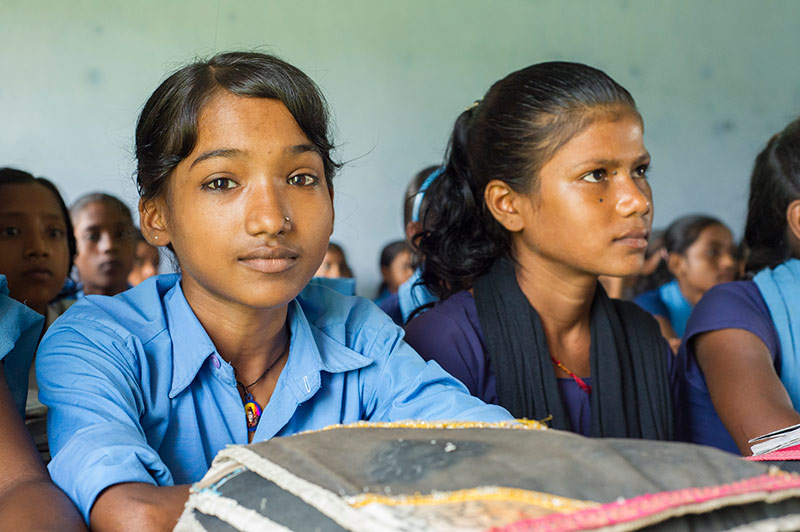Delegates to the World Education Forum in lncheon, South Korea, have proclaimed a new Incheon Declaration in support of a draft “Framework for Action 2030,” with a bold new global promise to “ensure inclusive and equitable quality education and promote lifelong learning opportunities for all.”
That goal encompasses a number of education “targets” that span the full spectrum of education priorities from early childhood education through adult literacy.

While the Framework will remain in draft form until November, it is unlikely to change significantly. The accompanying and equally important indicators to the new Framework won’t be finalized until March 2016.
The Framework reflects a reassessment of the “Education for All” and Millennium Development Goals, with greater emphasis on improved education quality and learning outcomes; increased and expanded access and inclusive, equitable education for marginalized groups, and gender equality; early childhood education; youth skills; lifelong learning; and education’s role in broader human development around human rights, gender equality, and peace and non-violence.
The Education for All Steering Group, a UNESCO initiative, drew these priorities against the remarkable progress made under the former goals, as well as some of their perceived shortcomings.
Moving education forward
The Framework moves education forward in several important respects.
For example, while the Education for All goals aimed for free and compulsory primary education, the Framework seeks 12 years of free primary and secondary education of good quality, with at least the first 9 years compulsory.
Also, the completion of primary and secondary education is, for the first time, directly linked to the learning outcomes that should be attained at those stages, a key point in the joint recommendations issued by the Basic Education Coalition and the Global Campaign for Education.
In terms of quality, there is a strong emphasis on the need for trained and qualified teachers. While this is not a new refrain, the Framework emphasizes that the profession can best attract new teachers through gender-sensitive policies and incentives that address working conditions, social security arrangements, attractive pension schemes and salaries, and proposes that a qualifications framework for teachers and administrators be adopted.
With respect to assessments, the Framework takes a broad flexible approach. It states that assessments need to be more robust and comprehensive, and cover both cognitive and non-cognitive skills.
Regarding the requirement that all young people and adults achieve relevant and recognized proficiency levels of functional literacy and numeracy skills, the Framework observes that the required levels, and how people apply reading and writing skills, depend on specific contexts.
With the current Education for All goal of gender equality in education unmet, the Framework recommits to its achievement by 2030. It notes that adolescent girls and young women living in poor and remote rural areas—who may be subject to gender-based violence, child marriage, early pregnancy and a heavy load of household chores—will require special attention.
Notably, the Framework emphasizes the importance of education in conflict and emergencies, particularly in light of the increased percentage of out-of-school children and youth living in such countries (36%, up from 30% in 2000).
The Framework also specifies that education policies, sector plans and budget planning should include relevant risk assessment, preparedness and response to emergency situations for education, and initiatives that respond to the education needs of children, youth and adults affected by disaster, conflict, displacement and epidemics, including internally displaced persons and refugees.
It specifically suggests the need for flexible and alternative approaches for those out-of-school, as well as the need for equivalency and bridging programs.
The Framework also seeks much greater attention to education in the context of humanitarian responses. Safe and secure schools are prioritized, with the expectation/goal that every institution has access to water, electricity, working toilets, adequate and safe classrooms, appropriate learning materials and technology.
Readiness for primary school is pegged to a young child’s developmental milestones, including adequate health and nutritional status, and age-appropriate language, cognitive, social and emotional development.
The balance between aspiration and achievement
Finally, at the host-country level, the Framework reflects a realistic balance between the aspirational and the achievable. Flexibility is given to national governments to translate the global targets into achievable national targets based on their educational priorities, national development strategies and plans, the ways in which their education systems are organized, their institutional capacity and the availability of resources.
At the same time, the Framework reiterates that national governments are still primarily responsible for the education of their citizens. The Framework also indicates that governance and accountability mechanisms, quality assurance, information systems, financing procedures and mechanisms, and system and institutional management arrangements are important to quality education systems and effective outcomes, an encouraging note to entities seeking to build ministry capacity and efficiency.
All of these shifts are welcome and positive.
The big question, of course, is whether stakeholders will now match the targets and indicators with necessary resources, and whether those resources will fund programs, practices and policies that foster collaboration around national education plans, and advance real sustainability.
If that occurs, the Declaration and accompanying Framework for Action promises to have an enormously positive impact on the global educations efforts we in the development field are undertaking.
Cris Revaz serves as Senior Education Counsel, with expertise in global education advocacy.